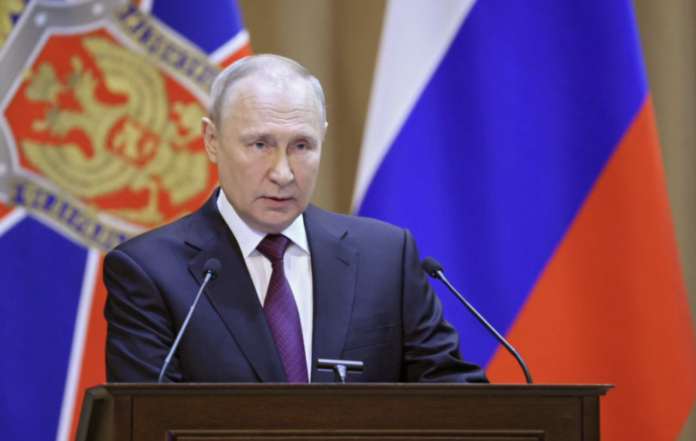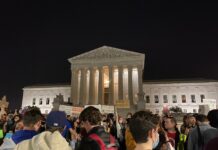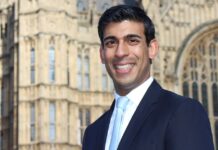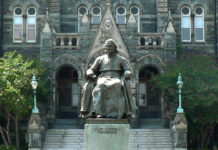![]()
On Feb. 22, 2023, at a rally supporting the ongoing war in Ukraine, Russian President Vladimir Putin claimed that the war is a fight for “the historical borders of our people.” This address is just the latest in a long line of speeches and propaganda pieces aiming to justify the war (in Putin’s terms, the “Special Military Operation”), which blatantly contradicts international laws and norms of sovereignty. Much of Putin’s rhetoric in the year since his invasion of Ukraine pulls from a shared history of Russia and Ukraine, and nationalistic allusions to Russia’s past.
Putin’s recent addresses, at the Feb. 22 rally and in his State of the Nation Speech on Feb. 21, illustrate his habitual use of history. He appropriates and alters history to gain support for his war and bolster Russian morale throughout the conflict. Many of Putin’s invocations of history are specifically centered around the concept of a historically united Ukraine and Russia and references to World War II. These focuses allow him to create unity among his citizens and to legitimize illegal international action.
Central to Putin’s historical rhetoric is the idea of Ukraine as a part of Russia. He uses the history of the Kievan Rus, which placed Kyiv in a prominent position in early Russian society, within what is now Russia and Ukraine. Putin draws a spiritual association between Ukraine and Russia through the Eastern Orthodox Church. He has consistently denied a historical basis for the existence of an independent Ukrainian nation and has maintained that the West has historically tried to steal Ukrainian territory from Russia.
In his State of the Nation speech on Feb. 21, he cited a conspiracy between the Austro-Hungarian empire and Poland to deny Russia its territory in Ukraine. These, and other allusions to historical unification, including the statement about the “historic borders of our people” from Feb. 22, fit into this refutation of a historically independent Ukraine.
Another one of Putin’s misuses of history is his invocation of World War II as a great Russian patriotic cause, in which there was a clear moral imperative— good versus bad. At the Feb. 22 rally, a rap version of the Soviet wartime song “Katyusha” was performed. Throughout the conflict, Putin refers with pride to the Russian history of fighting against Nazi Germany and frequently asserts that Ukrainian leaders are Nazis.
Putin goes so far as to say that Ukrainian soldiers wear Nazi chevrons on their uniforms while displaying Wehrmacht symbols on their tanks. The War remains a traumatic memory for Russians and Europeans of that generation, which makes this line of reasoning effective in garnering Russian public support.
In actuality, most of Mr. Putin’s mentions of history stretch the truth, or completely fabricate it. Ukraine has sometimes, but not always, been a part of the Russian empire. Though parts of Ukraine were for a time under Austro-Hungarian and Polish rule, it declared its independence in 1991, and was recognized by the international community. The way Putin frames Russian, Ukrainian, and European history ignores the many shifting borders of the continent throughout the greater part of history. The Russian dictator places false significance on the periods of Ukraine’s history when it was a part of Russia and uses this narrative to claim that the war is a reclamation of historical territory.
Additionally, Putin’s insinuations that the West is using NATO expansion and the war in Ukraine as an intentional operation against Russian sovereignty, or that the Ukrainian people are run by Nazis who paint their symbols on battle gear, are almost wholly conspiracy-based- that is, easily debunked by an internet search.
Unfortunately, Putin’s claims in regards to Ukraine do not undermine the efficacy of their influence on the Russian people. His false history lessons enter the public consciousness as fact, and the regime prohibits counternarratives of truth. Putin threatened Russian unity by his actions in Ukraine, but his rhetoric in the last year has reinforced that unity. His use of propaganda and misuse of history allow Russians to feel that they are justified in their continued support of the war.
Although they may not wish to send their children to fight and die, Russians may feel that they are fighting for their own land that is now controlled by a hostile regime in Kyiv which is controlled by Western puppet masters who have always conspired against Russia. Importantly, Putin’s portrayal of Ukrainian officials as Nazis allows Russians to be the protagonists in a historical battle and almost necessitates their intervention in Kyiv. These, and Putin’s various other misuses of history, utilize emotional connections to the past to engrain falsehoods in the Russian milieu in justification of an illegal war.
Putin’s fabrications have allowed him to maintain morale in his citizenry through a year of horrific destruction and human cost, and, in spite of their disregard for the truth, their efficacy should not be underestimated.












